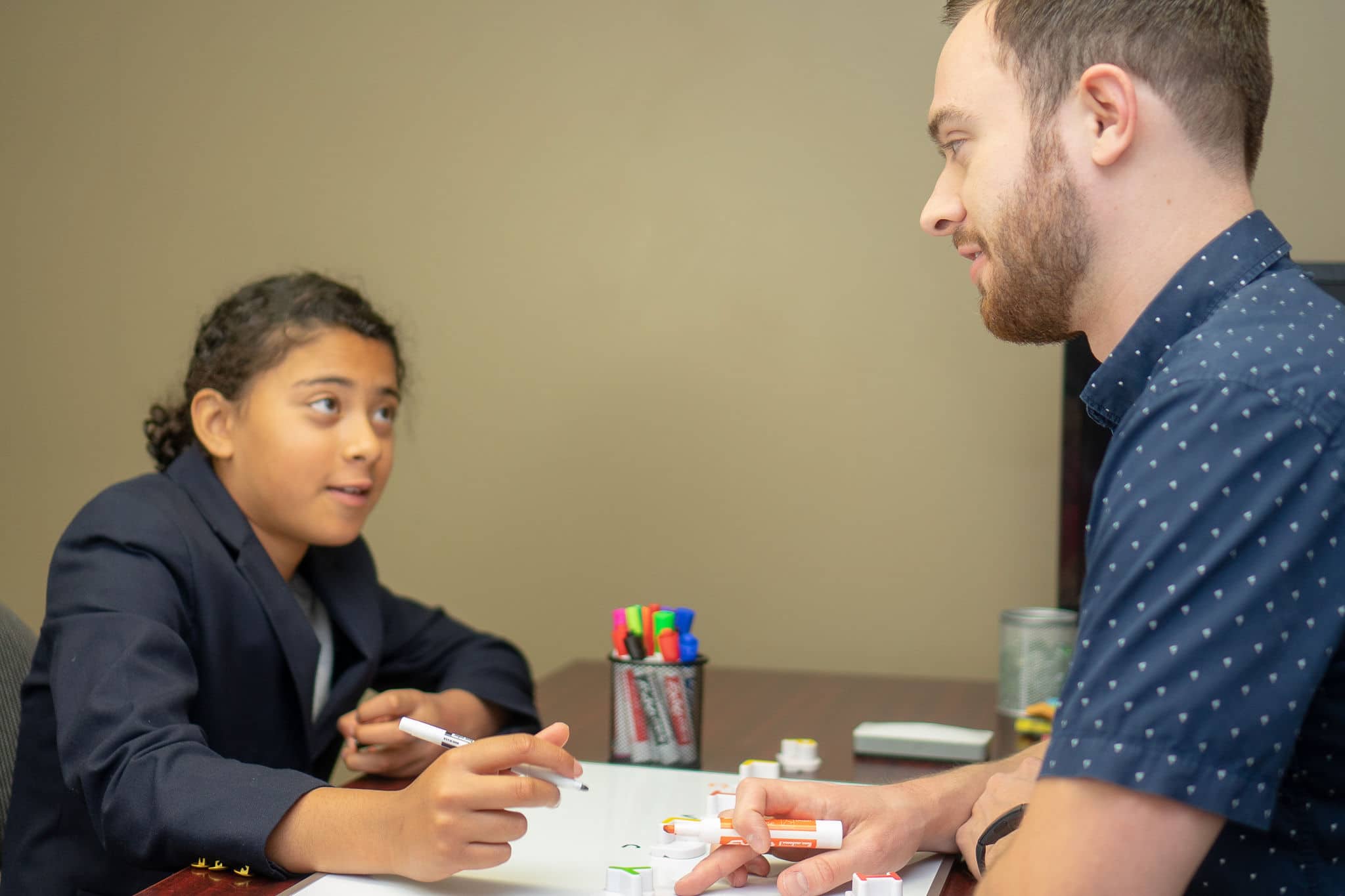Mind Over Learning Uses Students’ Learning Skills & Strengths While Simultaneously Developing The Weaker Learning Skills
Now what does that really mean? Let me give you an example. A typical student with NVLD (non-verbal learning disability) has strong verbal or language skills, but weak non-verbal reasoning and thinking skills. This person has a hard time visualizing images or ideas in the mind. So for every math procedure, we attach words for the student to say while calculating or following the procedural steps.
Let me provide another example. A typical student with dyscalculia will have strong verbal, language, or reading and writing skills. However, they will have weak math skills, often finding it difficult to learn basic math. This type of student has a hard time getting a sense of numbers and math operations. For every math problem we have them do, we will have them sound out the process of solving the problem with words, similar to our student with NVLD. We may also teach them other words they can use, or may see in a math problem, to form strong associations that help them remember what kind of operation a problem is asking for. Students with strong language skills are able to learn math much better this way.
Different Learning Styles & Tutoring Methods
The point is, not all students use their brain in the same way. Some students are able to gather main ideas, make accurate inferences or retain detail better. Some students have memories that recall facts quickly, or are capable of coming up with more options when solving problems. Students with learning disabilities, however, often face challenges with what might be considered thinking in natural patterns. These are processes and skills that teachers often assume come naturally, and are not usually taught explicitly.
Mind Over Learning not only focuses on tutoring reading, math, writing and comprehension, we also progressively teach the student how to think in those natural patterns. For example, a student with ADHD, who experiences impulsivity, may rush through all processes of learning and expressive output. A student with impulsivity challenges can learn to slow the pace by being taught specific steps of the thinking process that allow the student to control their pace and impulsivity. These steps support the overall learning, and are another way we help students handle their impulsivity.
Building On Students’ Strengths & Weaknesses
Because Mind Over Learning is a private learning centre and work one on one with the students, we have the time, experience and resources to enhance strong learning abilities while working on the weak learning skills. It is critical to develop these weaknesses because they are essential neurodevelopmental abilities for learning effectively at school and throughout life. Remediating individual learning difficulties means the student will be able to function better in all situations faced in life.
Our learning programs are specifically designed for students with learning difficulties, with or without a specific diagnosis. Our approach is highly successful.
How Can Our Tutors Help?
Our tutoring programs are backed by research and years of experience. With nearly 20 years of delivering exceptional results to countless families and their children, we’ve been able to test and refine our programs to create an effective remediation process that helps resolve students difficulties and learning disabilities. Our passionate and devoted team is committed to creating a learning environment that fosters cooperation, engagement, and unwavering support. Our team of tutors are trained and experienced in dealing with a variety of learning disabilities. We can help resolve any difficulties that your child might be experiencing in the classroom.
Contact Us for More Information!
Contact us to learn more about our tutoring programs and how we can build on the students strengths and weaknesses to help your child excel in school. We would love to hear from you and learn how we can provide you with academic support. Call our office at 250-860-0084 to ask us questions or find more information.

